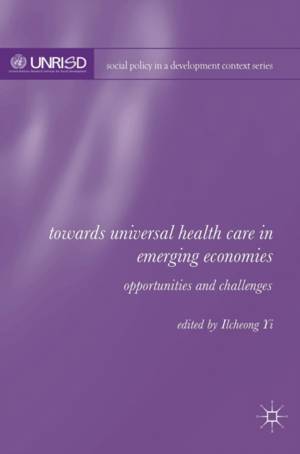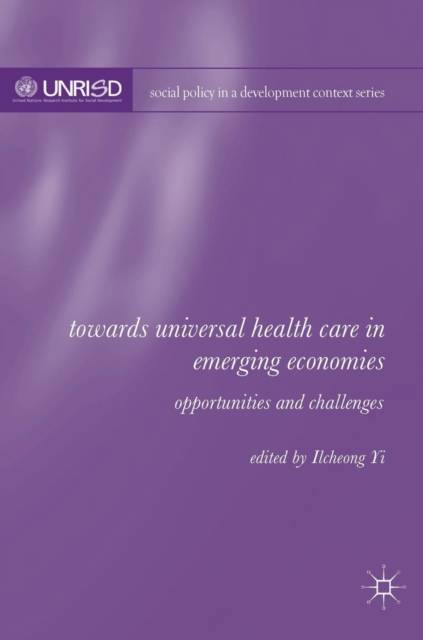
- Afhalen na 1 uur in een winkel met voorraad
- Gratis thuislevering in België vanaf € 30
- Ruim aanbod met 7 miljoen producten
- Afhalen na 1 uur in een winkel met voorraad
- Gratis thuislevering in België vanaf € 30
- Ruim aanbod met 7 miljoen producten
Zoeken
Towards Universal Health Care in Emerging Economies
Opportunities and Challenges
€ 305,45
+ 610 punten
Omschrijving
Universal health coverage refers to access to key promotive, preventive, curative and rehabilitative health interventions for all at an affordable cost, thereby achieving equity in access. The resolution on universal health coverage, which was unanimously adopted by the UN General Assembly in December 2012 makes achieving universal health coverage one of the top priorities in development goals. But 'how' remains an open question. This edited volume presents lessons on political and institutional drivers and challenges of expanding health coverage in development contexts. These lessons are drawn from analysis of eight emerging economies roughly categorized into two groups: Brazil, China and Thailand, which demonstrate significant progress in actual coverage as well as legal guarantee; and India, Indonesia, Russia, South Africa and Venezuela, which are cases in which there is a legal guarantee or policy framework for universal health coverage, but less satisfactory performance in terms of actual coverage. Based on a broadly shared framework, 'public sector systems of provision', which emphasizes both the distinctive nature, actors and processes involved in the provision of health care and the context in which health care systems evolve, all chapters address key questions related to the structural, political and institutional constraints and opportunities of expanding health coverage. Investigating the relationship between the health care system and the policies and institutions of other social and economic policy sectors, the chapters explore the institutional and political factors that facilitate the expansion of health coverage in developing countries with diverse social, political and economic contexts. Paying special attention to the historical trajectories of institutional and policy linkages between the health care system, other policy sectors, and political and social coalitions, the chapters offer lessons on available and relevant political and institutional arrangements for social policy in diverse developing countries that will be of interest to both academics and practitioners.
Specificaties
Betrokkenen
- Uitgeverij:
Inhoud
- Aantal bladzijden:
- 421
- Taal:
- Engels
- Reeks:
Eigenschappen
- Productcode (EAN):
- 9781137533760
- Verschijningsdatum:
- 9/03/2017
- Uitvoering:
- Hardcover
- Formaat:
- Genaaid
- Afmetingen:
- 148 mm x 210 mm
- Gewicht:
- 689 g

Alleen bij Standaard Boekhandel
+ 610 punten op je klantenkaart van Standaard Boekhandel
Beoordelingen
We publiceren alleen reviews die voldoen aan de voorwaarden voor reviews. Bekijk onze voorwaarden voor reviews.










